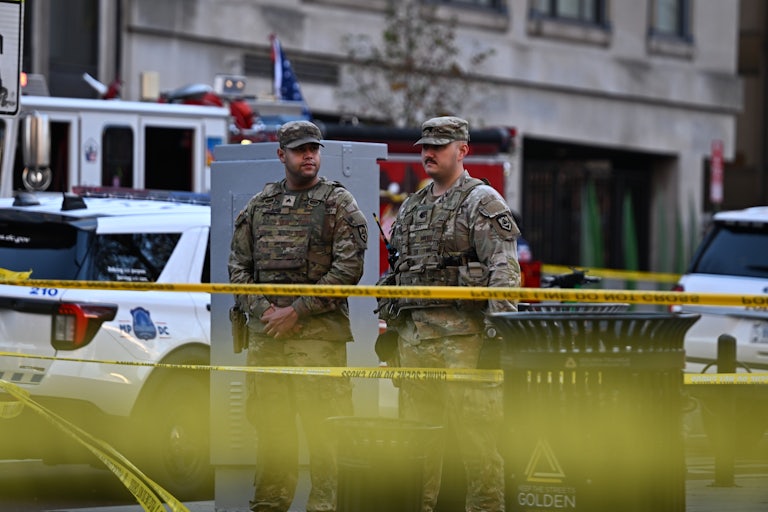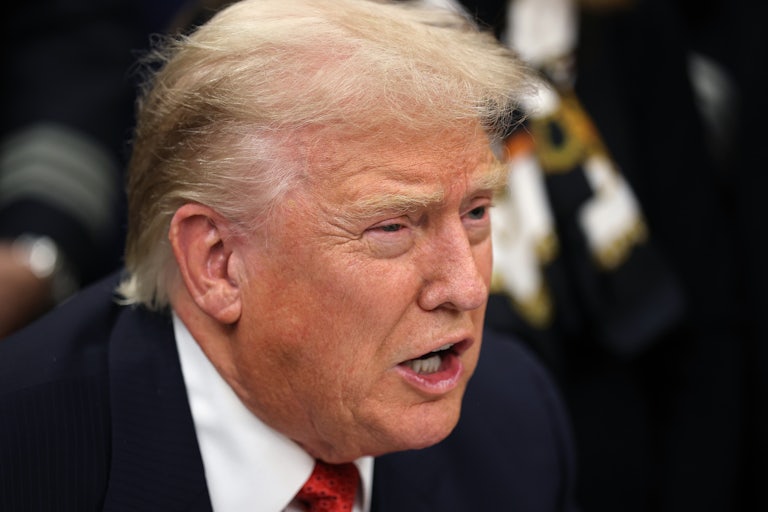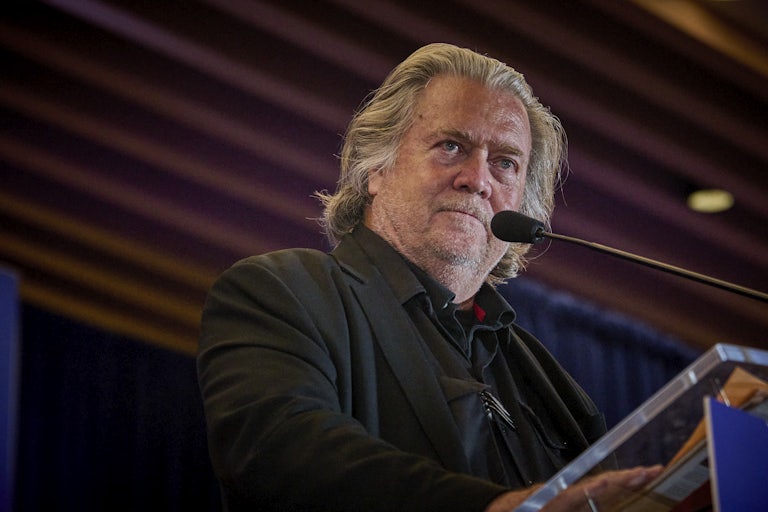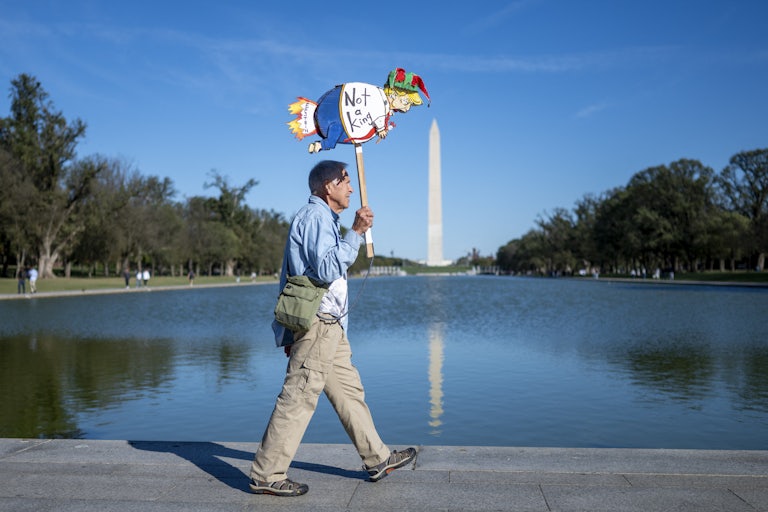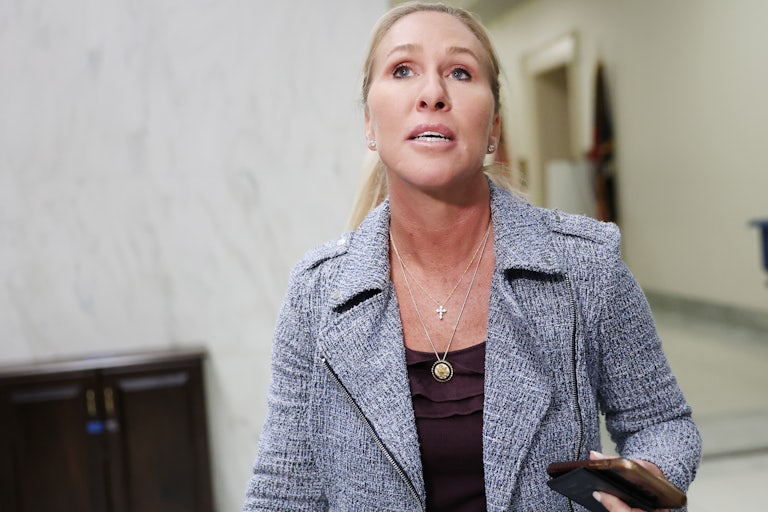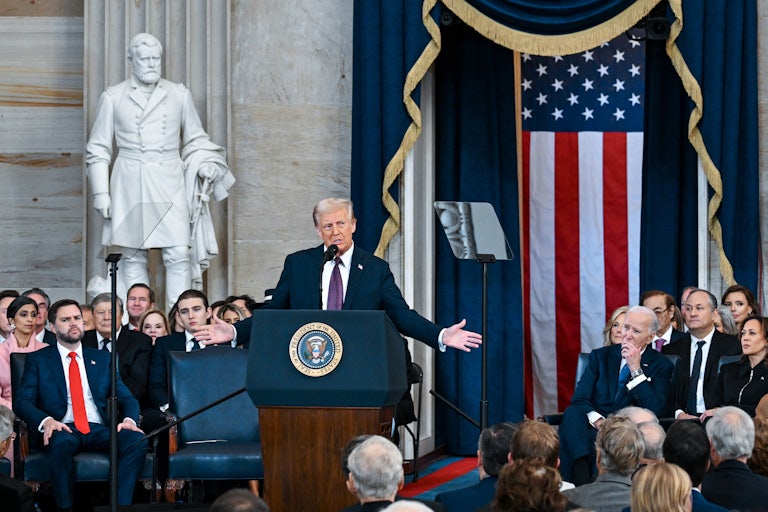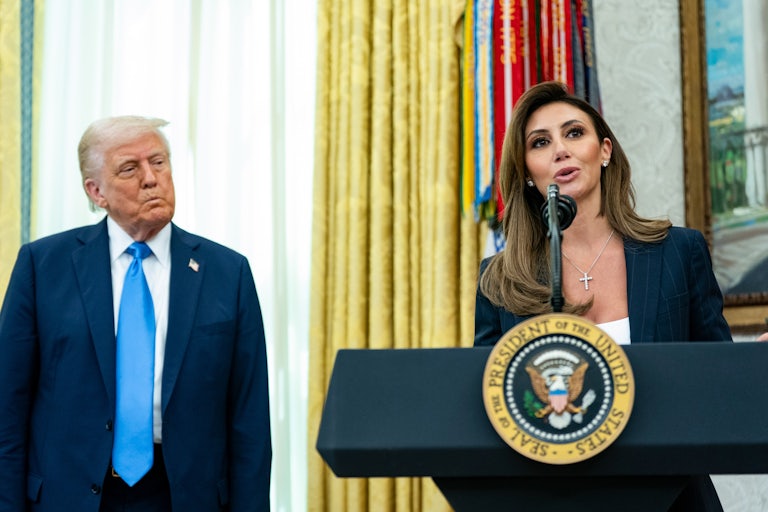Trump’s FBI Spent Nearly $1 Million on Redacting Epstein Files
A new report reveals the FBI’s frantic “special redaction project” when they thought the Epstein files would be released.

The bill mandating the Department of Justice to release the Jeffrey Epstein files has been signed into law, but certain parts may still never be seen by the public.
That’s at least in part because the DOJ has been paying FBI agents nearly $1 million in overtime to work on the “Epstein Transparency Project” at a bureau facility in Winchester, Virginia. FBI Director Kash Patel has tasked nearly 1,000 agents on the project, which, according to internal reports, has also been referred to as the “Special Redaction Project.”
Between March 17 and March 22, the bureau spent $851,344, according to a Bloomberg report, and agents racked up 4,737 hours of overtime pay between January and July looking through the DOJ’s evidence on Epstein. This included the investigation into Epstein’s 2019 prison death, as well as “search warrant execution photos,” “street surveillance video,” and aerial footage.
The DOJ’s remaining, unreleased Epstein documents amount to nearly 100,000 pages, and Patel and Attorney General Pam Bondi have told the FBI to flag every mention of Donald Trump. There are also 40 computers and electronic devices, 26 storage drives, more than 70 CDs, and six recording devices collectively containing over 300 gigabytes of data.
Physical evidence includes photographs, travel logs, employee lists, over $17,000 in cash, five massage tables, blueprints of Epstein’s island and Manhattan home, four busts of female body parts, a pair of women’s cowboy boots, one stuffed dog, a logbook of visitors to Epstein’s private island, and a list described as a “document with names,” which could be Epstein’s rumored client list.
It’s no secret that Trump, backed by his allies in Congress, fought long and hard to delay the Epstein files’ release, only to relent last month when Representative Adelita Grijalva was sworn in and cast the last needed House vote to authorize the release. This project, ostensibly to protect the privacy of Epstein’s victims and people not involved in his crimes, could also be a way to prevent exposing Trump and his allies when evidence gets released.
